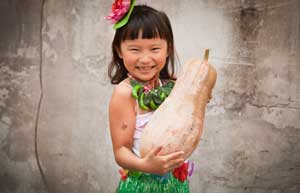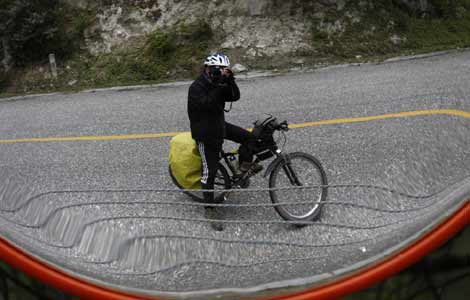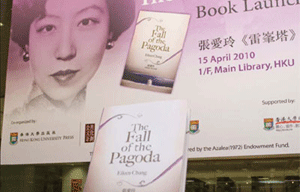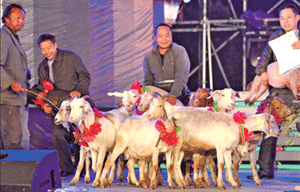Best of the barbecues
Updated: 2011-10-02 07:05
By Shao Wei (China Daily)
|
|||||||||
|
Crisp, juicy delicious roast whole lambs top a mouthwatering list of exotic barbecued specialties in the Xinjiang Uygur autonomous region. Liu Yuanqi / For China Daily |
When in Xinjiang, one of the best attractions is a juicy lamb skewer freshly grilled and crusted with salt, cumin and chili flakes. Shao Wei takes us on a culinary journey.
For most tourists in Xinjiang, the most urgent task after getting off the plane or train is not to check into the hotel. It is to check out the nearest Xinjiang barbecue stall along the streets.
China's Xinjiang Uygur autonomous region, located in the hinterland of the Eurasian continent, is home to a colorful community of different ethnic groups.
The salad bowl of Central Asian influences gives its cuisine unique characteristics and a mouthwatering list of specialties - roast whole lambs, mutton kebabs, roasted buns filled with minced lamb, Bachu grilled fish, and roasted sweet pumpkins stuffed with walnut, raisin and dried apricots.
Sitting on the low benches of a kebab stand in any city or town here, you can feast on skewers of juicy lamb snatched bubbling from the grill, spurting hot grease at the first bite.
"The secret to Xinjiang barbecue is good fresh mutton, plus a cumin-based mix of herbs and spices," says Niyaz, owner of a barbecue eatery in an alley behind the Erdaoqiao bazaar, in the Xinjiang capital Urumqi. The 42-year-old Uygur has been roasting whole lambs for 16 years.
Although his stall is no larger than a phone booth, he sells an average of 15 lambs a day, at a price of 80 yuan ($12.5) a kilogram.
"We Uygur people usually come to buy whole roast lamb on big days, such as festivals and wedding parties, while the majority of the customers at my eatery are tourists. They come to visit Xinjiang and are curious about the grilled lamb," he says.
Niyaz gets up at 6 am every day to get the best lambs, usually 2-year-olds, in the morning bazaar. Then he coats each with a mix of egg yolk, brine, ginger, cumin and flour, and skewers it from head to tail with a wooden pole with a big iron nail at one end.
After that, he carefully slides the lamb into a huge clay oven, whose temperature is maintained at 180 to 200 C. The lamb is roasted for about an hour and a half until it turns golden.

"Making a roast lamb is not easy. As a whole animal weighs from about 8 kilograms to 15 kilograms, it needs enough practice to cook it evenly on all sides to lock in the juices," says Niyaz. He learned all this from his father, and took almost three years to perfect it.
The roasted lamb is left to rest for a few minutes before the juicy grilled golden-brown lamb is taken out on a cart and placed in front of guests. The most honored guest at the gathering is then invited to cut off the first piece and eat before the rest of the animal is served to the party.
The art of grilling kebabs is very different from cooking a whole roast lamb, but is no less attractive to eager customers.
Maneuvering a row of kebabs over a charcoal fire in an iron trough outdoors is "an easy and enjoyable experience", according to Zhang Yu, a peddler originally from Hunan province.
Looking much like a grill specialist, Zhang expertly threads iron skewers with slices of lamb and lamb fat, and dusts them with a mix of chili, salt and ground cumin; flips them over and dusts them again.
"Come and see! Two yuan for one glossy, tender and delicious Xinjiang kebab," Zhang calls out, laughing loudly.
"This is different from goat meat in inland China, Xinjiang mutton is not greasy and has no unpleasant smell. And cumin adds a unique taste," he adds.
Rose willow roasted mutton-skewers, double the size of Zhang's kebabs, is another popular snack in Xinjiang.
Without any seasoning except for salt, five to six lean mutton slices are skewered one by one onto a 40-cm-long branch of rose willow, a common plant growing in the Gobi desert.
After a few minutes on the fire, the scent of the willow branches becomes one with the delicious mutton, giving the skewers a distinctive flavor.
"Roasting is a preferred method of cooking in Uygur cuisine. We have cooked and eaten roosted food for more than 2,000 years," says Yusanjan Tuhut, owner of a top Uygur restaurant in Urumqi.
His restaurant is famous for its roasted mutton breads, He sells about 500 a day, and in the peak season in summer, about a quarter of his customers are tourists, mostly from Germany and South Korea.
"We charge a little more than the roadside stands, but the mutton is better and the taste is better here," Yusanjan says.
The baked bread, bursting with its filling of minced mutton and onions, tomatoes and peppers, are the size of a man's fist.
"Take care! The filling will scald your tongue if you take a big bite," he says. The proper way to eat it is to split the bun apart and let it rest awhile before tucking in.
To cool down, you can eat it with a bowl of icy, light homemade yogurt. At least it will sooth scalded lips if you had been impatient.
You can contact the writer atshaowei@chinadaily.com.cn.
(China Daily 10/02/2011 page9)











